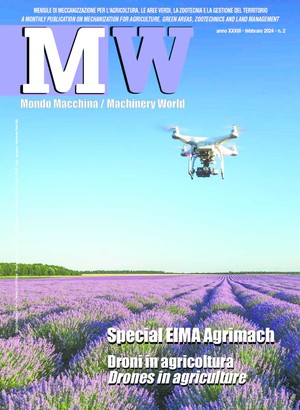
Trade with Russia: ongoing restrictions
EU measures launched following Russia's aggression against Ukraine do not only concern the direct export of products, including machinery, but also the shipment to countries that do not adhere to sanctions and can therefore triangulate goods towards the Russian Federation. The insertion of clauses in contracts to ensure that goods are not subject to restrictions is of particular importance
The Mechanics and components are among the sectors most affected by EU sanctions against Russia. These products fall, in fact, under the so-called “fifth package" of EU sanctions (EU Reg. 576/2022), which prohibits the export of goods capable of contributing to Russian industrial growth, as listed in Annex XVII of Reg. 576/2022.
Therefore, it is necessary to pay particular attention to the EU regulations that limit trade with Russia and Belarus and which, in specific sectors, have established real import and export bans. The consequences foreseen in the event of a violation of the restrictive measures are, indeed, significant: In addition to administrative sanctions, operators may also incur criminal liability, with penalties of up to six years' imprisonment.
The main prohibitions concern six different product categories. Specifically, exports are prohibited of: dual-use goods, i.e., all technologies that can be used for both civilian and military purposes (Annex I, Reg. 821/2021); other technologies that can be used for security and defense purposes (so-called almost dual-use, Annex VII, Reg. 328/2022); products concerning the energy sector, such as carbons (Annex IX, EU Reg. 328/2022 and Annex XX, EU Reg. 576/2022); products concerning the transport sector (annex X, EU Reg. 328/2022 and Annex IV, EU Reg. 394/2022); luxury goods and traditional Made in Italy products (annex XVIII, EU Reg. 428/2022); products that may contribute to Russian industrial growth, such as machinery (Annex XVII of Reg. 576/2022).
These prohibitions do not concern only direct export from Italy to Russia since the indirect transfer to any natural or legal person, entity or body in Russia is also prohibited. Therefore, not only operations carried out with a single transport to Russia are subject to sanctions, but also any triangulations with countries not aligned with European sanctions, such as Turkey, Serbia or China.
It should be noted, in fact, that the European Commission has expressly prohibited triangulations with the countries of the Eurasian Economic Union in order to bypass the bans imposed by the European Union on Russia and Belarus. In its notice to economic operators issued on April 1, 2022, the EU Commission urged operators to pay the utmost attention to sanctions, including through triangulations with the countries of the Eurasian Economic Union and, in particular, with Armenia, Kazakhstan and Kyrgyzstan.
In order to avoid sanctions application, it is advisable for economic operators to insert in every import/export contract specific clauses to ensure that goods are not subject to restriction. Exporting companies will be able to make a declaration stating that compliance with the rules on sanctions is an essential element of the contract (under penalty of nullity), also undertaking not to export to Russia and Belarus.
It should be noted that in Italy, the Parliamentary Committee for the Security of the Republic seems to have already started the first investigations aimed at monitoring possible triangulations. Therefore, it is essential for companies and operators working in international trade to pay particular attention to export control and carry out prior due diligence of products and their destinations to avoid incurring the application of important sanctions.
In fact, in case of non-compliance with the trade restrictions imposed by the EU, the discipline contained in Articles 18 and 20 of Legislative Decree 221/2017 is applied. This provides fines from 15 thousand to 250 thousand euros and a prison sentence from two to six years.
Specifically, different penalties are envisaged depending on whether the infringed legislation relates to the transmission of dual-use technologies or bans on exporting other products subject to restrictive measures.
For the violation of dual-use regulations, a prison sentence of two to six years or a fine of 25 thousand to 250 thousand euros is provided for anyone who transmits products and technologies abroad in the absence of the necessary Uama (Unit for the Authorization of Armament Materials) authorizations or using an authorization issued based on false documentation (Article 18, paragraph 1, Legislative Decree 221/2017). The violation of the indications provided by the individual Uama authorizations is, instead, punished with imprisonment from one to four years or a fine from 15 thousand to 150 thousand euros (art. 18, paragraph 2, Legislative Decree 221/2017).
On the other hand, the transmission of almost dual-use goods without the required Uama authorizations is sanctioned with imprisonment from two to six years or a fine from 25 thousand euros to 250 thousand euros (art. 20, paragraph 2, legislative decree 221/2017). For the export of products subject to EU restrictive measures, for which there is no specific authorization, the penalty is imprisonment from two to six years (art. 20, paragraph 1, legislative decree 221/2017). The violation of the requirements to take advantage of any exemptions is, instead, punished with imprisonment from one to four years or a fine from 15 thousand to 150 thousand euros (art. 20, paragraph 3, Legislative Decree 221/2017).
Finally, it should also be noted that imports from Russia have also been affected by import bans and restrictive measures. The import ban affects many iron and aluminum steel products from Russia, energy materials and coal, and several goods used by EU consumers and businesses, such as shellfish, caviar, tires, wood concrete, and numerous fertilizers (EU Reg. 576/2022).








